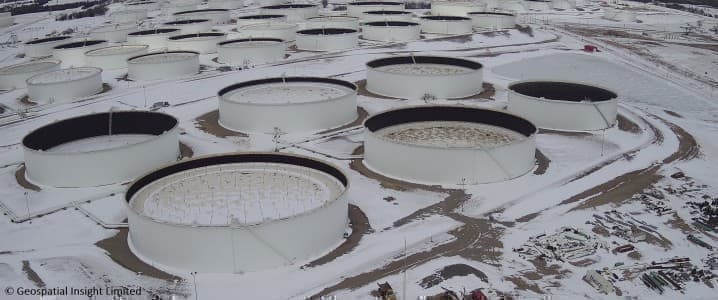The European Union’s plan to reduce imports of Russian oil, gas, and coal to zero by 2027 will cost it some $220 billion (210 billion euros), according to a draft plan cited by Reuters.
The three pillars of the plan include switching to other oil and gas suppliers, expanding wind and solar generation capacity, and reducing energy consumption, the document showed.
The money, according to plans, will come from the EU’s Covid-19 recovery fund, which is already bound to renewable energy commitments by member states. Ultimately, the plan suggests, the additional investment would reduce its oil and gas import bill.
News of plans to eliminate Russian oil and gas imports emerged earlier this month when the Financial Times reported, citing earlier draft plans, that the EU will have to spend some $205 billion (195 billion euro) until 2027 to effect this shift way from Russian hydrocarbons, on top of the already-agreed spending on carbon emission reductions.
The plan, per the FT report, calls for “rapidly reducing our dependence on Russian fossil fuels by fast-forwarding the clean transition and joining forces to achieve a more resilient power system and a true Energy Union.”
As part of these efforts, the European Union is accelerating the installation of wind and solar capacity, seeking to have 45 percent of its electricity come from renewable sources by 2030. This is an upward revision of earlier plans for 40 percent of electricity to be generated by wind and solar.
The bloc seeks to lower its gas consumption by a third by 2030, Reuters noted in its report on the draft plan, replacing it with both renewables and hydrogen.
The European Union also eyes a reduction in energy consumption across the block by as much as 13 percent versus earlier plans for a 9-percent cut in consumption.
By Irina Slav for Oilprice.com
More Top Reads from Oilprice.com:
- Failure To Implement Russian Oil Ban Could Send Oil Crashing To $65
- Oil Markets Are Bracing For A Slew Of Bullish News
- High Gasoline And Diesel Prices Are Here To Stay


















The first is that Russian oil and gas supplies are irreplaceable now or for the foreseeable future. There is no one single oil or gas producer or a group of producers who can replace Russian oil and gas exports. It simply means a scramble for alternative resources that don’t exist. Moreover, replacing Russian oil and gas will definitely lead to skyrocketing energy prices thus adversely affecting prospects of economic growth in the EU.
The second reason is that expanding wind and solar electricity generation capacity is easy said than done. It has taken renewables more than 30 years and trillions of euros to account for 37.5% of electricity generated in the EU and it could take them another 15-20 years to raise their share to 45%.
The third reason is that rising energy consumption goes hand in hand with economic growth. There is a limit to how much efficiency can reduce consumption unless the EU economy enters a long period of stagnation.
Wouldn’t, therefore, be more sensible for the EU to continue importing Russian oil and gas while endeavouring to diversify its energy sources rather spend an estimated $220 on replacing Russian oil and gas and paying through the nose for sky-high energy bills?
Dr Mamdouh G Salameh
International Oil Economist
Visiting Professor of Energy Economics at ESCP Europe Business School, London